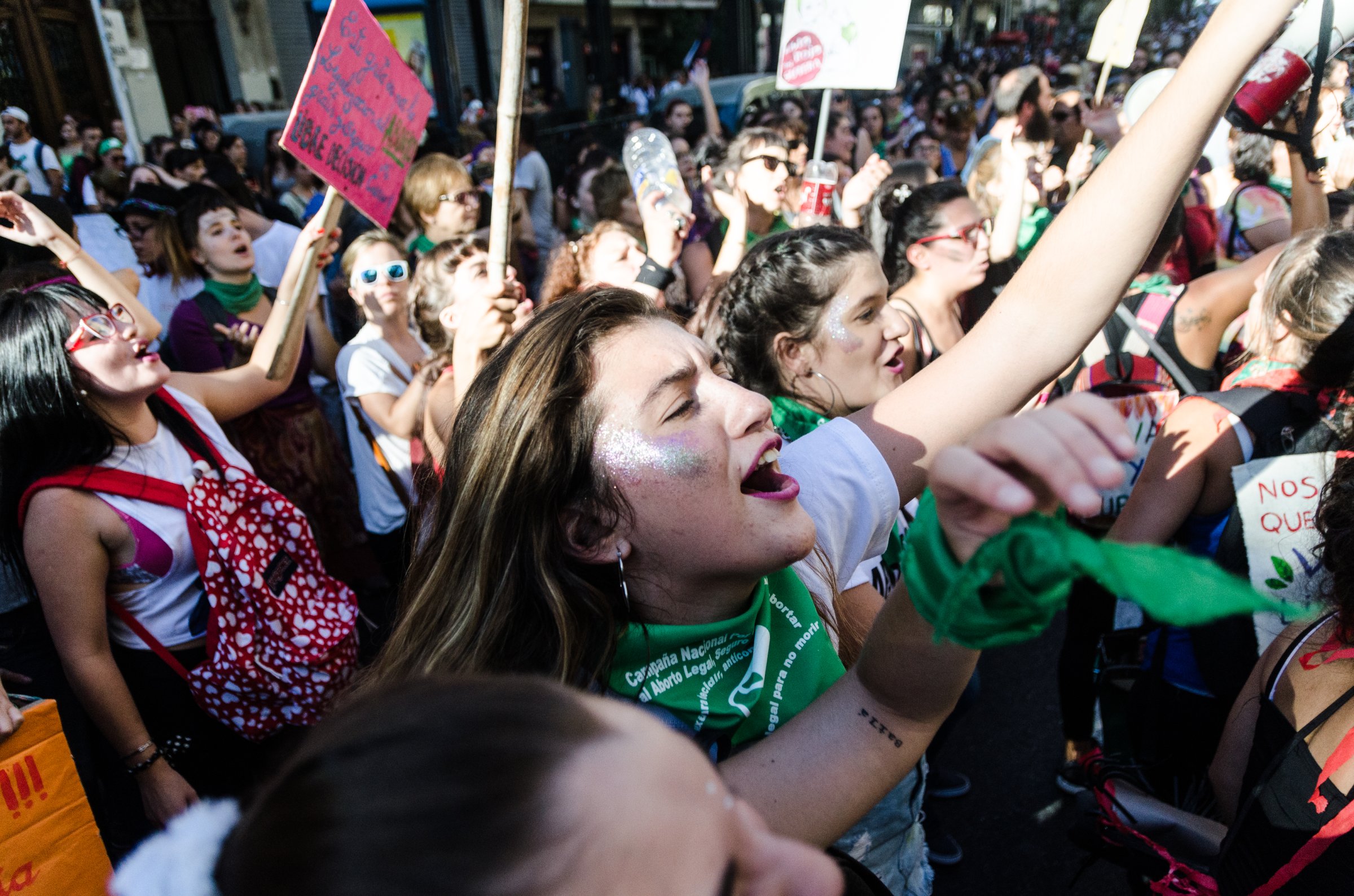
Less than three weeks since Ireland voted overwhelmingly to repeal its near-total ban on abortion, a country 7,000 miles away is considering similar reforms—albeit in Congress, rather than by popular referendum.
In Argentina, tensions are running high as lawmakers prepare for what is expected to be an extremely close vote Wednesday night on whether or not to legalize abortion. Protesters on both sides of the debate have began to gather outside Congress.
Abortion is almost completely illegal in Argentina, except in cases of rape or when the life or health of the woman is at risk. The proposed bill would legalize elective abortions up to 14 weeks, which would give Argentina one of the most liberal abortion regimes in Latin America.
In the region, only Cuba, Uruguay, Guyana, and one Mexican state allow abortion in cases other than rape, fatal fetal abnormality and threat to the mother’s life. In neighboring Chile, even these exemptions were only introduced in 2017.
And in practice, even when Argentinian women in exceptional cases seek to terminate their pregnancies, they struggle to find doctors who will carry out an abortion, Amnesty’s Secretary General told The New York Times.
At the time of publication on Wednesday, 123 lawmakers said they will vote against the bill, while 121 will vote in favor, according to La Nación newspaper. Eleven remain undecided.
The country’s main political blocs, usually bitterly partisan, have chosen not to dictate party lines, telling their members to vote on conscience.
“I’m a Catholic. But representatives of the people must legislate for the common good and social justice,” Fernando Espinoza, an opposition lawmaker from Buenos Aires Province who plans to vote for the bill, said on Twitter. “The state must guarantee sexual education in schools so that women can decide. We must put personal beliefs aside.”
The pro-abortion rights campaign argues that the ban does not actually prevent abortion, but instead forces an estimated 450,000 women to seek clandestine terminations every year. Official figures suggest 50,000 women are hospitalized each year after botched abortions.
Demonstrators in favor of abortion rights have adopted a green handkerchief as their icon, a reference to the history of Argentine women’s protest movements. Handkerchiefs are strongly associated with the ‘Mothers of the Plaza de Mayo’—a group of women who, for nearly 40 years, have worn white handkerchiefs during weekly demonstrations to commemorate thousands of Argentines who were abducted and disappeared during the country’s 1976-1983 military dictatorship.
“Of course we are worried [about the number of undecided votes], but we will get this passed,” Laura Salomé Canteros, told TIME. Canteros is a journalist and activist with the National Campaign for the Right to Legal, Safe and Free Abortion, which has been working for 13 years to increase awareness of the need for safe abortion and tackle social stigma.
For years, any relaxation of the ban appeared extremely unlikely. But Argentina’s feminist movement has been revitalized in recent years. Many trace the current momentum behind abortion rights to the 2015 Ni Una Menos (Not One Less) protest. Back then, 200,000 people took to the streets of Buenos Aires to protest against domestic violence, which kills one woman every 36 hours in the country.
“It was time that they listened to the demands,” said Canteros. “Abortion is a right, which is fundamental for women’s lives, health and freedom. Support has grown so much that now it’s battering the doors of parliament and we’ve gotten to the vote.”
Polls suggest there has been a surge in public support for legal abortion, which in 2016 stood at just 27%. An Ipsos Public Affairs poll in 2018 found 39% of Argentines in favor of elective abortion, while another reported 44%.
President Mauricio Macri, who was elected months after the 2015 Ni Una Menos protest, has encouraged an open debate on abortion though he opposes legalization. “I’m in favour of life, but I hope that all voices get heard and all positions get taken into account,” he told Congress in February. The Catholic Church, which remains prominent in Argentine society and whose leader, Pope Francis, is from Argentina, is also an powerful force for the anti-abortion campaign. The church believes life begins at conception and in April it urged the public “not to deny human rights to the most vulnerable in society.”
One of the leading opponents of the proposed law is Vice President Gabriela Michetti, who says Argentine women already have “a wonderful pro-life option” for dealing with unwanted pregnancies. “If a girl is supported and has all the things that she needs and can give birth, she can give this child to the multitude of couples, single people, and families that want to adopt and particularly want to adopt newborns,” she said in a TV interview on Sunday.
If lawmakers do approve the bill in the Lower House, it would still have to be approved in the Senate. Some see that as unlikely given that few senators have spoken out in favor of legalization. If the law does make it through, though, Argentina would be by far the most populous country in Latin America to allow elective abortions. Women’s rights activists say it could serve as a model for other countries in the region.
More Must-Reads from TIME
- Why Trump’s Message Worked on Latino Men
- What Trump’s Win Could Mean for Housing
- The 100 Must-Read Books of 2024
- Sleep Doctors Share the 1 Tip That’s Changed Their Lives
- Column: Let’s Bring Back Romance
- What It’s Like to Have Long COVID As a Kid
- FX’s Say Nothing Is the Must-Watch Political Thriller of 2024
- Merle Bombardieri Is Helping People Make the Baby Decision
Write to Ciara Nugent at ciara.nugent@time.com